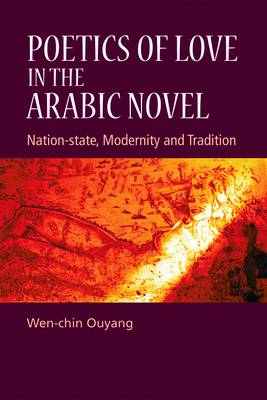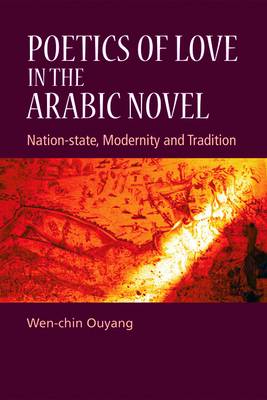
- Retrait gratuit dans votre magasin Club
- 7.000.000 titres dans notre catalogue
- Payer en toute sécurité
- Toujours un magasin près de chez vous
- Retrait gratuit dans votre magasin Club
- 7.000.0000 titres dans notre catalogue
- Payer en toute sécurité
- Toujours un magasin près de chez vous
Poetics of Love in the Arabic Novel
Nation-State, Modernity and Tradition
Wen-Chin OuyangDescription
Considers the Arabic novel within the triangle of the nation-state, modernity and tradition
Wen-Chin Ouyang explores the development of the Arabic novel, especially the ways in it engages with aesthetics, ethics and politics in a cross-cultural context and from a transnational perspective.
Taking love and desire as the central tropes, the story of the Arabic novel is presented as a series of failed, illegitimate love affairs, all tainted by its suspicion of the legitimacy of the nation, modernity and tradition and, above all, by its misgiving about its own propriety.
Authors studied include Naguib Mahfouz; Ghassan Kanafani; Ibrahim Nasrallah; Emil Habiby; Jamal al-Ghitani; Ali Mubarak; Muhammad al-Muwaylihi; Badr Shakir al-Sayyab; Khalil Hawi and Salah 'Abd al-SaburWorks studied include Arabian Nights and MaqamatAddresses issues such as nation & nationalism, Arabic poetics of love, modernity & modernisation; the politics of desire, the poetics of space, women & cartography of nation, identity and intertexutality
Spécifications
Parties prenantes
- Auteur(s) :
- Editeur:
Contenu
- Nombre de pages :
- 304
- Langue:
- Anglais
Caractéristiques
- EAN:
- 9780748642731
- Date de parution :
- 20-06-12
- Format:
- Livre relié
- Format numérique:
- Genaaid
- Dimensions :
- 155 mm x 236 mm
- Poids :
- 725 g

Les avis
Nous publions uniquement les avis qui respectent les conditions requises. Consultez nos conditions pour les avis.






